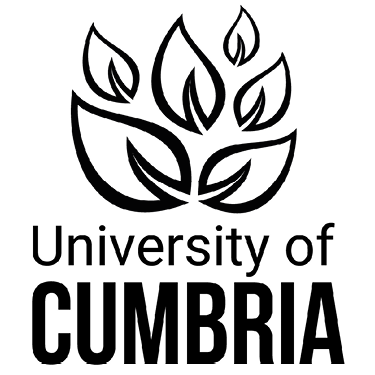Delve into the dynamic field of wildlife conservation, focusing on habitat management, conservation strategies, and wildlife ecology. Engage with both national and international case studies to understand the complexities of resource competition and its impact on conservation efforts. Enhance your practical fieldwork abilities by employing advanced technology to assess and monitor habitats, and explore innovative conservation and restoration strategies inspired by global examples. Develop leadership qualities through project management training and critical thinking exercises, while debating current sector issues.
Emphasize sustainable management practices and the significance of influencing human behaviour to drive effective conservation initiatives. Benefit from strong industry and academic connections, ensuring that your education is both relevant and impactful. This comprehensive approach equips you with the expertise and confidence to pursue a fulfilling career dedicated to preserving our planet's invaluable wildlife and natural habitats.
Relevant level 5 land-based industry related qualification (e.g. a foundation degree in a wildlife conservation subject with a minimum average grade of 50% at Level 5) is required.
Alternatively, substantial experience and demonstrable ability to study at Level 6 equivalent to 240 credits at Levels 4 and 5. APL arrangements are informed by the University of Cumbria's academic regulations.
Here’s how to apply depending on your plans:
• If this College is your only choice, you can begin the process by selecting the “Apply” button at the top of this course page, which will take you to the online application form for a simple and direct experience.
• If you’re applying to multiple Higher Education providers, submit your application through the Universities and Colleges Admissions Service (UCAS) by the specified deadline for the relevant recruitment cycle. This ensures your application reaches all your chosen institutions efficiently.
• For detailed information on UCAS applications and deadlines, https://www.ucas.com/applying .
| Study level | Cost | Additional fees |
|---|---|---|
| HE | Please enquire | Course Fee: £6,355.00 *Please note that all fees are subject to change and will be confirmed upon enrolment.* Further information about financial support can be found on our page here: https://northumberland.ac.uk/experience/financial-support/higher-education-financial-support/ The following course-related costs are not included in the fees: - Optional field trips - Required equipment - Environment specific PPE - Monthly app fees NB - Where these costs are prohibitive, applications to the Hardship Fund would be welcomed to ensure parity of experience. |
The programme uses predominantly face to face sessions with online and practical work where appropriate. The learning and teaching methods typically used by tutors include lectures, seminars, guest speakers, workshops, practical sessions, practical projects, case studies, and tutorials.
A significant amount of personal study time is expected to be undertaken by you, comprising of, for example, background reading, assignment work, preparation for seminars, and practical case studies. A social learning community, including a peer support programme, will further enhance this.
When not attending scheduled learning activities, you will be expected to continue learning independently through self-study.
The teaching team consists of a range of experienced Higher Education tutors with a strong industry background and an interest in ethical practice and sustainability. All tutors have postgraduate qualifications, which include wildlife conservaton, equine science, psychology, animal behaviour, environmental conservation, and leadership and management.
Assessment tasks are linked to the learning outcomes of each module and are scheduled throughout the modules. Assessment typically consists of practical and theoretical work and is carefully designed to enhance knowledge and critical thinking, alongside a range of practical and transferable skills. Assessments include presentations, written assignments and project work, with embedded application of technology as appropriate to develop digital skills.
You will have formative assessment opportunities to help you learn and develop your knowledge and skills, as well as summative assessments on which you are graded.
Industry and academic experts are invited in as guest speakers to support delivery throughout the year. In addition to guest speakers, visits are included to enhance theoretical and practical content.
In addition to attending lectures, you will need to spend an extra 10-15 hours per week on independent study, which will include completing recommended reading, assessment preparation and conducting research for your dissertation.
The BSc (Hons) Wildlife Conservation Top Up is offered to enable tertiary level graduates to utilise knowledge of contemporary habitat and wildlife conservation issues in order to inform the application of practical skills that are vital to industry.
The programme has been designed to offer progression opportunities to FdSc Wildlife Conservation graduates and to develop a conceptual understanding of the principles underpinning contemporary wildlife and environmental management and its relationship to stakeholders within the land-based sector.
You will study habitat management, human-wildlife conflict, sustainable management and review current issues debated within the conservation sector. In addition, you will design and undertake an industry project as part of your dissertation.
Graduates will have the opportunity to progress to careers in environmental consultancy, countryside management and environmental management or continue into postgraduate study.
You will study modules including:
- Human-Wildlife Conflict
- Habitat Management
- Sustainable Management
- Review Current Issues within the Equine Sector
In addition, you will design and undertake an industry project as part of your dissertation.
Graduates can pursue careers in conservation industries, leveraging expertise in GIS, SPSS, and animal behaviour to address challenges like habitat restoration and conflict mitigation. Opportunities exist with wildlife charities, environmental commissions, and local or national government bodies. The entrepreneurial skills gained also support self-employment ventures. Those interested in academia may explore roles in diagnostic laboratories or pursue further qualifications such as wildlife licences. Communication and presentation skills open pathways in marketing, education, advisory roles, and beyond. For those wishing to advance their studies, guidance on progressing to Master’s level is available, helping you shape a future dedicated to conservation.
This is a Higher Education course awarded by the University of Cumbria.
Visit the University of Cumbria website here.

Find out everything you need to know about Northumberland College and our exciting range of courses!
Register for our next open event


Rated Outstanding in all areas by Ofsted
2024

Top land-based college in the North East

100% pass rate for equine management and floristry courses

Our extensive re-development programme will create outstanding new facilities